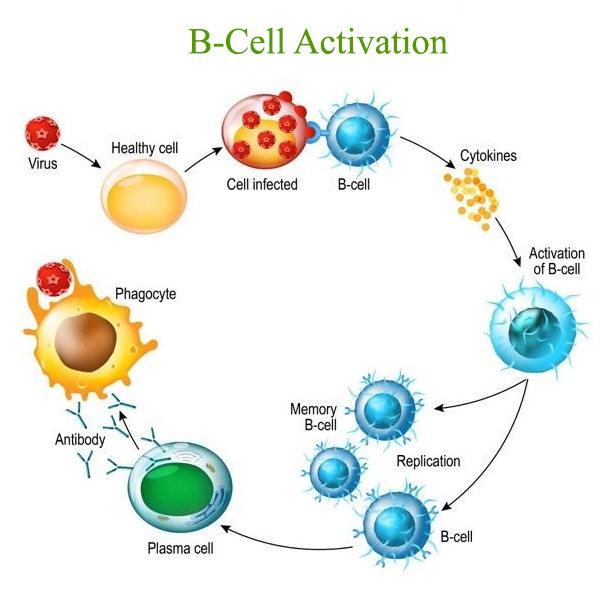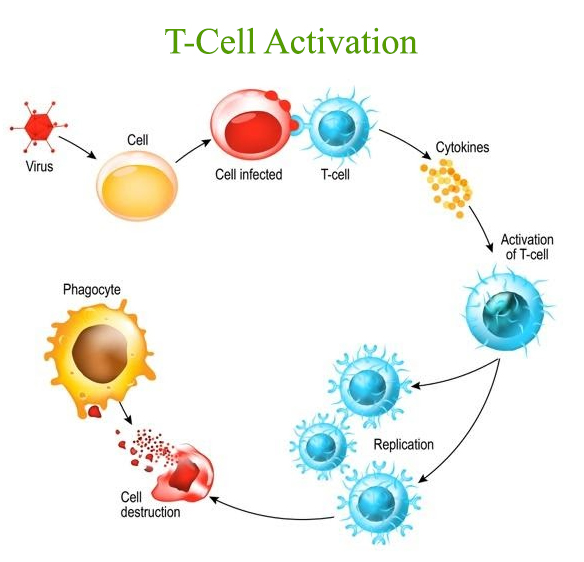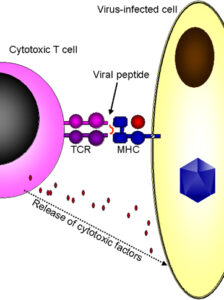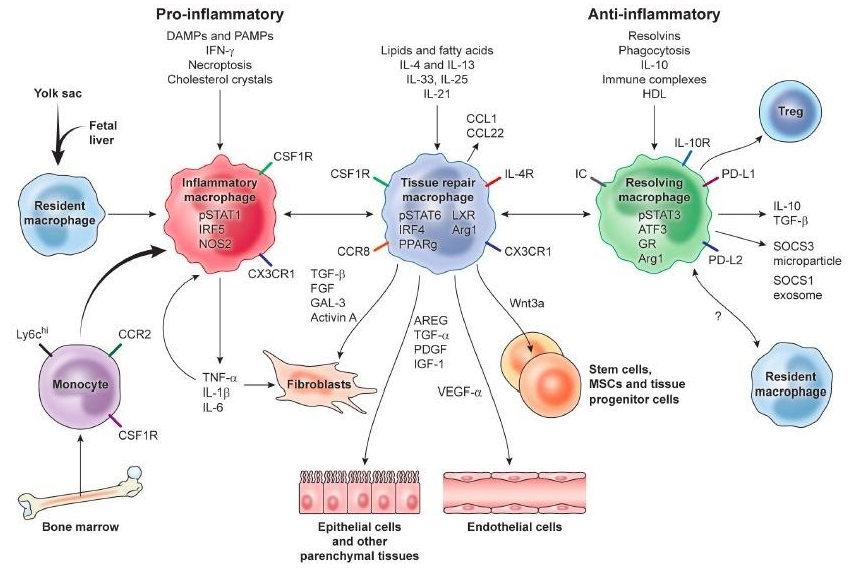You can Unlock the Power of Your Immune System
Dr. Hansen explains how you can unlock the power of your immune system in fighting against die-ease and chronic conditions using your body’s innate ability to heal.
Too Much Fear—Too Little Faith in the Body’s Immune System
The world has been inundated by images and negative data that have created a panic that is perhaps worse than the threat of the Coronavirus itself. The contagion of fear is spreading faster than the contagion of the virus. This is a case of too much negative data and not enough common sense. The positive data has been almost entirely overlooked as the media, pharmaceutical, monetary and industrial complex are focused on the negative. The stress, fear and worry is making matters worse by suppressing immune function.
The Coronavirus is a novel new virus that is now a pandemic and spreading across the globe in more than 198 Countries. Some people are dying, but the hyper-media non-stop focus on the negative exponential spread of this virus and the worst case scenarios, is counterproductive. We are not helpless. We should focus on the positive and have faith in the body’s Innate Cellular Immunity. We can take charge of our own destiny and focus on boosting our own immune systems rather than merely waiting helplessly for a vaccine that will take 12-18 months at best and may not work very well at all, or worse, may cause significant unanticipated harm.
Highly Contagious but Mostly Mild
For 95% of the world population, SARS-CoV-2 is causing nothing more than mild cold-like symptoms. Some are not experiencing any symptoms at all. Others will have mild to moderate flu-like symptoms and only 2-4% will suffer more serious complications and 1-2% may die due to immune compromise by age or other illnesses, including heart disease, diabetes, or respiratory and auto-immune diseases. Although the total number of cases is rising exponentially, the most telling number is that 98% all of Active Cases in the US are Mild.

Worldwide Stats as of Sunday 3/21/2020
Ten Times More Asymptomatic Cases than Confirmed Cases
A new report based on data from China finds that for every known case of infection, there could be up to 10 people with the virus who have such a mild case that they have no symptoms and who remain unidentified in the community. This means that the actual number of Coronavirus Cases around the world is probably 10 times higher. This is good news, because this means that this virus is even milder than previously known and the case fatality rate is 10 times less than previously known.
“Probably hundreds of thousands of people have already had Covid-19, didn’t know they had it, and recovered. Should be tested for antibodies so they could go back to work and keep the economy going.” New York Governor, Andrew Cuomo.
How to Boost Your Immune Defense with Vitamin A
NOTICE: “The following information is for educational purposes only. There are currently no products or services that cure, treat, or prevent COVID-19. I do not claim or want to imply that Dietary Supplements prevent, treat or cure of COVID-19, or any other disease. The body is the real healer and only the God given healing powers within the body can cure disease.” Dr. Clark Hansen, N.M.D.
We all have the natural inborn ability to fight off viruses and otherwise deadly pathogens. Each of us can boost our own Immune System. In fact, we have two Immune Systems: the Addaptimve Immune System that makes anti-bodies to attack viruses indirectly and the Innate, or Cellular Immune System that is made up of specialized cells that can be multiplied to attack and destroy viruses directly. This is the Immune System you can affect immediately.
You do not have to live in fear waiting for the discovery of a new drug or vaccine to fight the Coronavirus, you can immediately boost your immune system’s ability to augment and activate your own Innate / Cellular Immune Defense to find, attack and destroy viruses.
This is not a new or merely theoretical protocol. There is a Dietary Supplement that has been used for years in millions of infants and children to reduce the risk of dying from the Measles virus. Taking 200,000 IU of water-based Vitamin A daily for two consecutive days has been shown to be associated with an 82% reduction in the risk of death from the Measles virus in children under the age of two years (RR 0.18; 95% CI 0.03 to 0.61) and this same water-soluble Vitamin A dose has been shown to cause a 77% reduction in the risk of pneumonia specific mortality (RR=0.23; 95% CI 0.02 to 1.05). Vitamin A works by enhancing the integrity of the epithelial lining of the nasopharynx and lungs and the endothelial of the blood vessels in the lung alveoli. Vitamin A has been shown to boost the immune system production and activation of Natural Killer Cells and T-Lymphocytes to protect us from all any and all invading viruses and other pathogens. Specific research with Vitamin A is needed to conclusively confirm the quantitative benefits it may have in boosting the immune structure and function. No research has yet been concluded using Vitamin A in the treatment of COVID-19, although there is a clinical trial currently underway using 13-cis-retinoic acid (Isotretinoin), which is a synthetic form of Vitamin A. The National Center for Complementary and Integrative Health (NCCIH) at the National Institutes of Health (NIH) is urgently needed to conduct clinical trials using the natural form of Vitamin A due to its potent immune enhancing capabilities and exceptional safety profile.
Source: Vitamin A for treating measles in children. Cochrane Database Syst Rev. 2005 Oct 19;(4):CD001479. American Academy of Pediatrics;
“Vitamin A is not virus specific to a single virus. It should provide the same or similar benefits for all viruses.”
– Dr. Clark Hansen N.M.D.
What is Adaptive Immunity?
Adaptive immunity is antibody-mediated immunity. This part of the Immune System produces antibodies by the B-cells. The first time someone is exposed to a foreign substance, like a virus, it may take the immune system up to two weeks to adapt and make an antibody blueprint and to produce enough of a specific antibody to fight the virus. The B-cells need time to make enough antibodies to bind to the invading viruses indirectly and prevent them from spreading throughout the body. However, if the individual has a robust Innate Immune System, these Specialized Immune Cells, including T-Helper Cells, Cytotoxic T-Cells, Monocytes and Macrophages, can bind to the viruses and destroy them directly. (See: British Society of Immunology: Immune responses to viruses)

What is Innate Immunity?
The Innate Immune System is composed of several different types of Cells that can attack viruses directly, hence it is sometimes referred to as the Cellular Immune System. These cells are the keys to launching an immune response against viruses. T-Helper Cells play a major role in defense against viruses, protozoa and intracellular bacteria. They help activate Cytotoxic T-Cells and Macrophages to attack infected cells, and they are needed to stimulate B-Cells to secrete antibodies. (For more information, see: Cells of the Immune System)

Cytotoxic T-Cells and Natural Killer (NK) Cells

When a virus infects someone, it is looking for a host in which to live and multiply. It first invades the epithelium (lining) and mucous membranes of the nose, mouth, lungs and gastro-intestinal tract. Once inside the host, viruses replicate and begin to spread and virtually cannibalize the host. T-Cells, including Cytotoxic T-Cells from the Innate Immune System circulate throughout the body looking for infected cells in the body where Viruses hide.
Cytotoxic T-Cells carry specialized proteins on their surface that help them to find and recognize virus infected cells. These proteins are called T-Cell receptors (TCRs). In order to find Viruses that are hiding inside the host cells, Cytotoxic T-Cells use molecules called class I major histocompatibility complex proteins (MHC class I) to display pieces of protein from inside the cell upon the cell surface. Cytotoxic T-Cell can then recognizes that viruses are hiding inside the cells and they will then secrete cytotoxic chemicals that break the cells apart and kill the invading viruses hiding inside.
Natural Killer Cells, known as NK Cells for short, are specialized type of T-Cells that kill cells that are hard to find because they have a reduced number of MHC class I molecules on their cell surfaces. When the NK Cell finds a cell displaying fewer than normal MHC molecules it is triggered to release a burst of toxic substances, in a similar way to Cytotoxic T-Cells, which kills the virus-infected cell.
Monocytes, Macrophages and Inflammation
Monocytes and Macrophages are two additional critically important cells of the Cellular Immune System. Monocytes and Macrophages are key regulators of inflammation, tissue repair and regeneration involved in a viral infection. Following a viral infection monocytes and macrophages undergo marked changes so that they can play critical roles during the initiation, maintenance, and resolution phases of tissue repair. Deficiencies in monocyte and macrophage numbers or function can lead to uncontrolled inflammation, deficient generation of anti-inflammatory macrophages, or failed communication between macrophages and epithelial cells, endothelial cells, fibroblasts, and stem cells or tissue progenitor cells, all contributing to a state of persistent injury, which can lead to the Severe Acute Respiratory Syndrome (SARS) associated with this strain of the Coronavirus, known as SARS-CoV-2.

Mechanisms driving major macrophage activation phenotypes in tissue repair, regeneration, and fibrosis
Vitamin A is the Key to Boosting Your Cellular Immunity and Stopping Viruses
Vitamin A Boosts Barrier Defenses
The epithelium lines all outer surfaces and most inner surfaces of the body. It functions as the front-line of defense against the invasion of viruses and other pathogens. Vitamin A is essential for the maintenance of normal protective epithelial tissues throughout the body, including the lining of the lungs and the intestines. This is the first barrier of defense in preventing viruses from penetrating into the body.
Vitamin A Protects the Epithelium and Mucous Membranes
Vitamin A promotes mucin secretion in the epithelium, which provides a physical barrier and slows viruses down so that the Cellular Immune System can find and kill them. Vitamin A deficiency leads to epithelial keratinization, or drying of the epithelial lining and a significantly depressed immune function. When Vitamin A is deficient it reduces the resistance of the lung tissues to invading viruses and it is no longer able to exert its mechanical barrier function, which can lead to respiratory tract infections, severe inflammation and pneumonia.
Vitamin A Boosts Thymus & Cell Mediated Immunity
Vitamin A also plays essential roles in the regulation, differentiation, maturity, and immunological function of all of crucial anti-viral cells of the Innate Cellular Immune System, including the Thymus. Vitamin A supports the Thymus, while deficiency is known cause atrophy of the Thymus. Innate immune cells are comprised of Macrophages and Neutrophils, which initiate immediate responses to pathogen invasion through phagocytosis (virus digestion) and activation of Cytotoxic T-Cells and Natural Killer T-Cells, which kill viruses by the release of cytotoxic chemicals.
Vitamin A Boosts Antibody Production
Antibodies represent a specific class of immunoglobulins. Vitamin A can boost the serum levels of Immunoglobulins and thereby enhance antibody production. Vitamin A deficiency leads to a defect in Antibody-dependent immune responses.
Vitamin A is a Powerful Regulator of Inflammation
Vitamin A is also essential for the regulation of tissue inflammation and tissue repair that occurs during a viral infection. Vitamin A promotes the development and differentiation of Monocytes and Macrophages in the lungs and the intestines. Macrophages include M1 Macrophages that secrete proinflammatory cytokines and M2 Macrophages that produce anti-inflammatory factors. (See Figure 1 above)
References:
Role of Vitamin A in the Immune System: J Clin Med. 2018 Sep; 7(9): 258;
Retinoic Acid as a Modulator of T-Cell Immunity: Nutrients. 2016 Jun; 8(6): 349;
Malnutrition and Infection: Complex Mechanisms and Global Impact: PLoS Med. 2007 May; 4(5): e115. Published online 2007 May 1. doi: 10.1371/journal.pmed.0040115
Historical Use of Vitamin A to Boost Immune Defense
The most effective way to boost immune defenses and avoid the most serious consequences of the Measles Virus has been a 2-day megadose of Vitamin A. This dose of Vitamin A has been recommended and used by the World Health Organization for years in millions of children worldwide. It has reduced the death rate from viral pneumonia caused by Measles by 77% in the most seriously ill hospitalized infants and children. Vitamin A can be taken safely to boost your immune system. Vitamin A is not a drug and not a treatment for any disease. It is nature’s key nutrient to boost your immune defense against invading organisms and cellular mutations.
Taking 200,000 IU of Vitamin A daily for two consecutive days has been shown to be associated with a 82% reduction in the risk of death from the overwhelming effects of the measles virus in children under the age of two years (RR 0.18; 95% CI 0.03 to 0.61) and a 77% reduction in the specific risk of mortality (RR=0.23; 95% CI 0.02 to 1.05) due to pneumonia. Vitamin A’s immune enhancing properties are non-specific. They are not limited to treating any single disease. They boost the immune system’s production and activation of immunity. Vitamin A enhances the structure and function of the immune system.
Clinical Studies on children with Measles taking Vitamin A for viral pneumonia have shown that the patients taking the 2-day megadose of Vitamin A experienced a much shorter hospital stay by almost five days compared to the placebo group (WMD -4.72, 95% CI -7.22 to 2.21). Additional research found that a group taking the 2-day specified dose of water-based Vitamin A was found to be 5 times more likely to have a complete recovery than the placebo group. (RR 1.54, 95% CI (1.04 to 1.88).
Source: Vitamin A for treating measles in children. Cochrane Database Syst Rev. 2005 Oct 19;(4):CD001479. American Academy of Pediatrics
Vitamin A comes in a maximum dose of 50,000iu per capsule. According to the CDC, the American Acedemy of Pediatrics and the W.H.O., the following Vitamin A dose is recommended for the treatment of Measles by age for 2 days:
- Infants aged <6 months: 50,000iu total per day (1-50,000iu capsule once daily for 2 days only)
- Infants ages 6–11 months: 100,000iu total per day (2-50,000iu capsules once daily for 2 days only)
- Children aged ≥12 months 200,000iu total per day (4-50,000iu capsules once daily for 2 days only)
An additional (third) age-specific dose of vitamin A should be given 2–4 weeks later to children with clinical signs and symptoms of vitamin A deficiency. (Source: CDC, updated 12/13/13)
Clinical studies in children found that taking 200,000iu daily for two consecutive days was the optimal dose: taking 100,000iu daily for two days did not provide a significant immune boost and taking 400,000iu daily for 2 consecutive days did not provide any additional benefits. Therefore, the optimal immune boosting dose appears to be 200,000iu daily for 2 consecutive days for both children and adults.
The above Vitamin A dosing may be taken every 4 weeks during winter months or during a severe immune challenge for up to 6 months.
How Much Vitamin A is Too Much? Can it be Toxic?
The acute toxic dose of vitamin A is 25,000 iu per kg (approx. 1.5 Million iu per 125 lbs or 2.0 Million iu per 175 lbs body weight), and the chronic toxic dose is 4000 iu per kg (200,000 – 315,000 iu) every day for 6-15 months.
Additional Natural Immune Boosting Agents:
Zinc is Essential for activation of Vitamin A
Zinc is essential to the activation of Vitamin A and therefore the Cellular Immune System. Zinc is a component of retinol-binding protein, a protein necessary for transporting Vitamin A in the blood. Zinc is also required for the enzyme that converts Vitamin A (Retinol) into Retinal and Retinoic Acid the most active form of Vitamin A.
Zinc is essential for membrane integrity, DNA synthesis and cell proliferation, and thus is needed for all highly proliferating cells, especially the immune cells. Zinc has been shown to play an important role in regulation of the immune response, particularly T cell-mediated function. Similar to changes observed in the elderly immune response, zinc deficiency is associated with thymus involution, and reductions in lymphocyte proliferation and antibody response
Low zinc status in the elderly contributes to age-associated dysregulation of the immune response and zinc supplementation has been shown to improve Cell mediated Immunity and T-cell function in elderly. Thus, zinc deficiency was indicated as a risk factor for immune deficiency and susceptibility to infection in the elderly. Zinc supplementation may therefore play an important role in boosting the immune system in the elderly.
Immune Boosting Herbs
Elderberry has been found to be effective in boosting the immune defense against multiple strains of viruses.
Echinacea has a long history of immune benefits. In a meta-analysis of randomized controlled clinical trials, Echinacea was found to reduce the risk of recurrent respiratory tract infections by 58% (RR 0.420, 95% CI 0.222-0.796; P=0.005). The study concluded , “Evidence indicates that echinacea potently lowers the risk of recurrent respiratory infections and complications thereof. Immune modulatory, antiviral and anti-inflammatory effects might contribute to the observed clinical benefits, which appear strongest in susceptible individuals.” (Echinacea Reduces the Risk of Recurrent Respiratory Tract Infections and Complications: A Meta-Analysis of Randomized Controlled Trials. Adv Ther. 2015 Mar; 32 (3):187-200)
Astragalus and Andrographis have both been shown to boost immune defense by boosting Natural Killer (NK) Cell production and activation. NK Cells are the first innate immune cells to recognize and kill viruses by secreting toxic cytokines leading to viral cell death. They are the first responders to a viral infection and their job is to hold the line of defense until additional immune cells can be alerted and activated. (Evidence Supporting a Phased Immuno-Physiolgical Approach to COVID-19 From Prevention Through Recovery. Integrative Medicine, Vol 19, No. S, EPub ahead of print)
Vitamin D3 Research
New research is showing that Vitamin D3, the active form of Vitamin D, stimulates the expression of a potent anti-microbial peptide, know as Cathelecidin. This peptide has been shown to destroy the cell walls of viruses causing them to break apart and disintegrate. Vitamin D also balances the immune response, preventing excessive inflammation that can lead to complications such as Pneumonia or Acute Respiratory Distress Syndrome (ARDS). Inflammation was the leading cause of deaths in the 1918 influenza pandemic and it appears that it may be the leading cause of deaths from SARS-CoV-2.
Flu viruses (including swine flu) and SARS Coronaviruses induce a massive inflammatory response that can overwhelm the body. In other words, it is uncontrolled over-production of pro-inflammatory cytokines. Vitamin D3 down-regulates the expression of pro-inflammatory cytokines such as tumor necrosis factor-alpha.
As people age, they often over-express these same destructive pro-inflammatory cytokines. The result is chronic low-level inflammation that damages aging arteries, joints, and neurons. By down-regulating excess pro-inflammatory cytokine production, vitamin D could save lives.
Antimicrobial peptides found in Vitamin D, known as Cathelecidins, are components of the immune system that protect against bacterial, fungal and viral infections. Secreted by immune cells throughout the body, Cathelecidins damage the outer lipid membrane of infectious agents (including influenza and coronaviruses), rending them vulnerable to eradication. A dose of 4000iu of Vitamin D3 has been shown to dramatically boost the production of Catehlecidins.
Summary
Have faith in your Innate Cellular Immune System. Do not cower in fear and isolation. Stress, fear, and worry are immunosuppressive. Hope is healing, it counters fear and boosts immunity. You can take charge of your own Immunotherapy. It is critically important to share this positive message with everyone you know.
Although, the Coronavirus is very contagious, only 5% or less of the cases are serious or life threatening. The positive news is that 95% of the COVID-19 Cases in the World and 98% in the US are Mild. The current Case Fatality Rate is 1.5% and may be much lower, because the number of asymptomatic/undocumented Cases is now reported to be at least 10 times higher than previously known. For most people, it feels like a severe flu, with headaches, body aches, congestion, fever, chills, sore throat, fatigue and less frequently cough and shortness of breath.
Only 5% of COVID-19 cases are serious enough to require hospitalization. The serious cases are concentrated in patients that appear to be immune compromised by advanced age or other known inflammatory diseases, including heart disease, high blood pressure and diabetes. These are the individuals that need Vitamin A & D most of all. This is the group that should be quarantined, but not forgotten. This group needs to be told the positive good news. Everyone can boost their own immune defenses by taking Vitamin A and Vitamin D3 to boost the production and activation of your own amazingly potent immune system.

